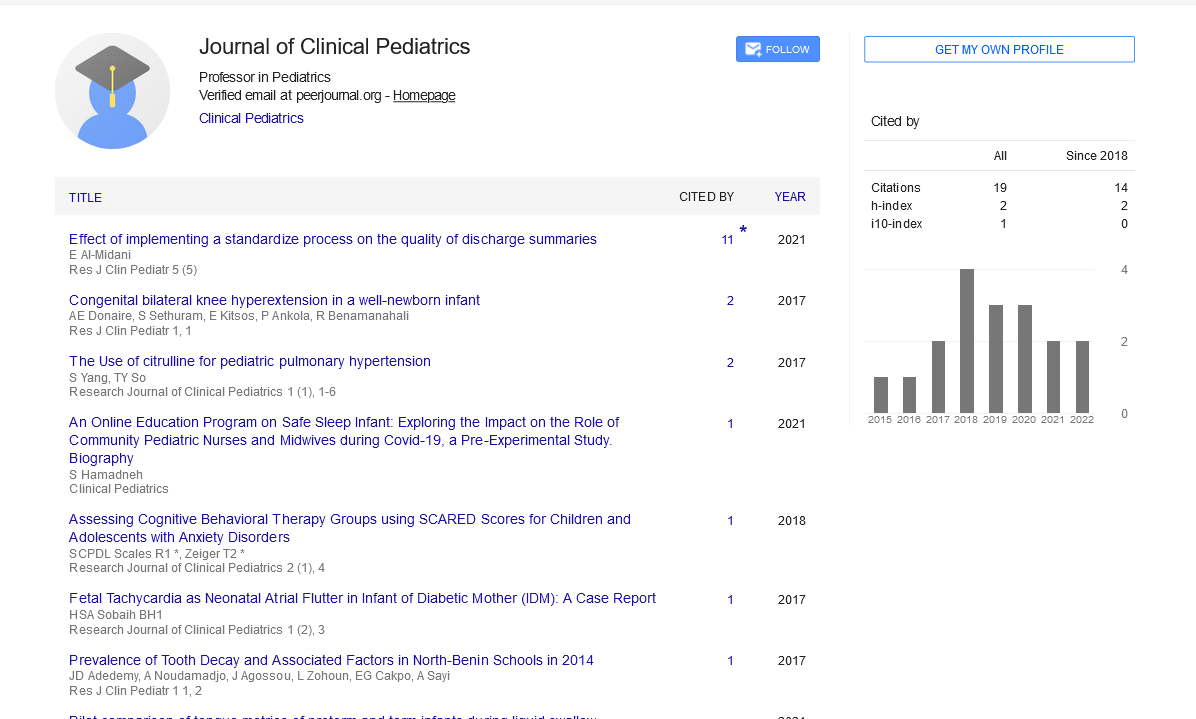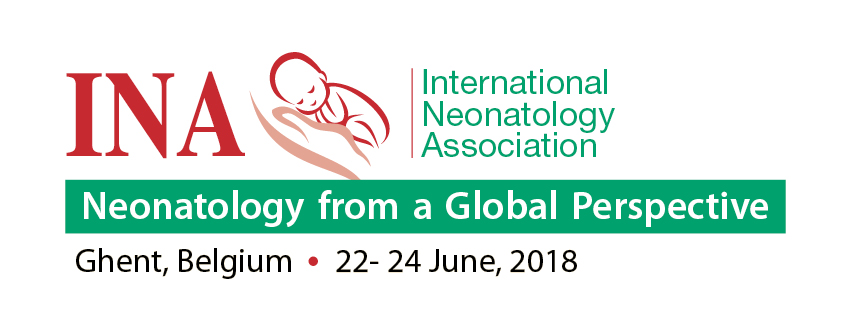Commentary, Res J Clin Pediatr Vol: 7 Issue: 4
Neonatal Care and Interventions: It's Challenges and Advancements
Michael Koon*
1Department of Pediatrics, The Chinese University of Hong Kong, Sha Tin, Hong Kong
*Corresponding Author: Michael Koon,
Department of Pediatrics, The Chinese
University of Hong Kong, Sha Tin, Hong Kong
E-mail: koon.michael@edu.hk
Received date: 27 November, 2023, Manuscript No. RJCP-24-128395;
Editor assigned date: 30 November, 2023, PreQC No. RJCP-24-128395 (PQ);
Reviewed date: 07 December, 2023, QC No. RJCP-24-128395;
Revised date: 21 December, 2023, Manuscript No. RJCP-24-128395 (R);
Published date: 28 December, 2023 DOI: 10.4172/rjcp.1000160
Citation: Koon M (2023) Neonatal Care and Interventions: It's Challenges and Advancements. Res J Clin Pediatr 7:4.
Description
Neonatology is a specialized branch of medicine that focuses on the care of new born infants, particularly those who are premature, critically ill, or have specific health complications at birth. This field encompasses various aspects of new born care, including diagnosis, treatment, and management of medical conditions in the first few weeks or months of life. The field has evolved significantly over the years, driven by advancements in medical technology, research, and a deeper understanding of neonatal physiology.
The roots of neonatology trace back to the mid-20th century when medical professionals began to recognize the unique medical needs of newborns. Initially, premature babies faced high mortality rates due to a lack of specialized care and medical knowledge. However, the establishment of Neonatal Intensive Care Units (NICUs) and the development of advanced medical equipment significantly improved the survival rates of premature and critically ill newborns.
Neonatal care and interventions
Neonatal care involves a multidisciplinary approach, where neonatologists work alongside nurses, pediatric specialists, respiratory therapists, and other healthcare professionals to provide comprehensive care. Advanced medical technologies such as ventilators, incubators, and monitoring devices play a important role in managing the delicate health of newborns.
Neonatal Intensive Care Units (NICU): Neonatal intensive care units are specialized facilities equipped to provide around-the-clock care for critically ill or premature infants. These units offer a controlled environment with specialized equipment and trained staff.
Respiratory support: Premature infants often require assistance with breathing, and various respiratory support methods, such as mechanical ventilation or non-invasive techniques like Continuous Positive Airway Pressure (CPAP), help support their respiratory function.
Nutritional support: Proper nutrition is vital for a newborn's growth and development. In cases where infants cannot feed orally, they may receive nutrients intravenously or through specialized feeding tubes.
Monitoring and diagnosis: Continuous monitoring of vital signs, blood tests, imaging studies, and other diagnostic tools aid in identifying and managing various health conditions in neonates.
While remarkable progress has been made in neonatal care, challenges persist. Prematurity remains a significant concern, and despite improved survival rates, premature infants often face longterm health issues, including developmental delays and chronic health conditions.
Advancements in technology, such as neonatal imaging techniques, genetic testing, and minimally invasive procedures, have significantly improved diagnostic capabilities and treatment options. Additionally, on-going research in areas like stem cell therapy, gene editing, and neonatal neurology holds promise for further advancements in managing neonatal conditions.
Neonatology presents ethical dilemmas concerning end-of-life care, decision-making for critically ill infants, and the use of invasive treatments with potential long-term consequences. Balancing the best interests of the infant with parental wishes and quality-of-life considerations poses complex ethical challenges for neonatal healthcare providers.
Neonatology stands at the intersection of medical innovation, compassion, and ethical considerations. The dedication of healthcare professionals in this field continues to improve outcomes for newborns, offering hope to families during challenging times. As research and technology progress, the field of neonatology will undoubtedly witness further advancements, enhancing the quality of care and outcomes for the tiniest and most vulnerable patients.
 Spanish
Spanish  Chinese
Chinese  Russian
Russian  German
German  French
French  Japanese
Japanese  Portuguese
Portuguese  Hindi
Hindi 
